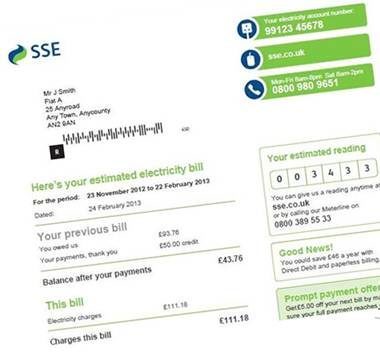Ofgem has confirmed its dual fuel retail price cap for average domestic bills will drop below £2,000 in 2023’s final quarter, even though large scale government price support for home tariffs has disappeared.
Critics pointed out that notionally average bills still stand at levels more than £200 higher than before first Covid then Putin’s assault on Ukraine threw world energy markets into turmoil.
The fall to £1,923 represents a 7% drop on the existing cap. Analysts Cornwall Insight explained that the regulator had altered its means of calculating typical household volumes, the notional Typical Domestic Consumption Value (TDCV). Under its assumptions of lower consumption volumes, the cap will amount to annual bills for average households approximately £100 per year less.
Dr Craig Lowrey, principal consultant at Cornwall Insight said: “While this modest drop in the cap won’t make a substantial difference to household energy bills, it is encouraging that prices from October are moving in the right direction.
“Unfortunately, Cornwall Insight’s predictions for 2024 show prices continuing to languish well above pre-pandemic prices – something which is currently forecast to remain the case for the remainder of the decade.
Lowrey cited threatened strikes at Australia’s LNG compressing plants as underscoring Europe’s exposure to upward pressures on global markets.
He called for greater government attention to protecting Britain’s vulnerable bill players, pointing out a mass programme of home insulation could result in lower bills.
“Protection of the vulnerable must be a primary concern, and the introduction of social tariffs such as those already in place for water and telecommunications remains an option”, the Cornwall expert opined.
Interviewed on Radio 4’s “Today”, energy minister Andrew Bowie said proposals for a social tariff were out to consultations via Ofgem. He defended government measures such as Rishi Sunak’s temporary, reluctantly imposed tax on excess energy company profits.
From Citizens Advice, the nation’s statutory advisor on fighting the fuel poverty now afflicting 6.3 million households, up nearly two million since 2021, criticism of the lowered cap was withering.
Gillian Cooper, the body’s head of energy policy, said “Well before the winter hits, we’re already helping record numbers of people behind on their energy bills.
“Today’s price cap announcement will do little to change that. Typical households are still facing sky-high energy costs, now that support schemes have come to an end.
“Increasing numbers of people we help are in a negative budget, where they simply don’t have enough money coming in to cover even just their essential bills”, Cooper added.
“The next few months will push households like these over the edge. Our data suggests it will be as bad, if not worse, than last winter.
“Government must step in quickly with more targeted support for the households who need it most.“
A robust defence of the price cap came from Greg Jackson, co-founder of Octopus, Britain’s third biggest home energy supplier.
“The energy price cap has been one of the most effective policies to improve retail energy. Initially, it drove efficiency programmes because companies could no longer pass on bloated costs to consumers. Then it cushioned the impact of the energy crisis, buying crucial time for the government to implement support programmes.
“It’s now forcing energy companies to pass on falling wholesales costs rather than pocketing profits. It protected customers – especially older and more vulnerable ones – from the loyalty penalty, and helped bring an end to the wild west of cowboy companies who sold at unsustainable prices leaving everyone to pick up the tab when they inevitably failed.”





As more than half UK electricity comes from renewables, it is high time that the Government breaks the formula that relates the price of electricity to the twice daily spot price of fossil gas. At present the domestic electricity price is around 3.5 times more than fossil gas in kWh terms which makes no long term sense. The electricity price needs to be gradually reduced relative to gas and this is a lost opportunity to start to do this. Reducing the cost of electricity will encourage the installation of heat pumps and the purchase of EVs, while reducing the cost of hydrogen from grid powered electrolysers, important to stimulate the adoption of hydrogen powered HGVs. This needs to be done carefully with a long term plan to avoid upsetting the apple cart of energy costs with a programme to support those on income support